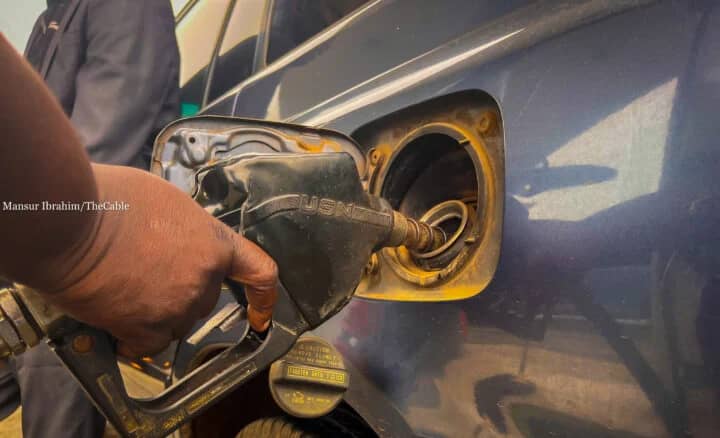A media blog claims that Nigerians will pay N500 for every N10,000 they spend on petrol consumption starting from January 2026.
The blog had referenced the new tax law signed recently by President Bola Tinubu.
“Nigerians will pay N500 as tax on every N10,000 they spend on petrol consumption starting from January 2026 under the new tax law,” the post reads.
VERIFYING THE CLAIM
President Bola Tinubu signed four tax reform bills into law on June 26.
The Nigerian Tax Law, Nigeria Tax Administration Act, the Joint Revenue Board (Establishment) Law, and the Nigeria Revenue Service (Establishment) Act are expected to take effect from January 1, 2026, under a renamed agency — the Nigeria Revenue Service (NRS).
In the tax law, a 5 percent surcharge was imposed on chargeable fossil fuel products.
A surcharge is an additional charge, fee, or tax added to the cost of a good or service beyond the initially quoted price.
Fossil fuel products, including petrol, diesel, and compressed natural gas (CNG), are derived from the processing of fossil fuels like coal, petroleum, and natural gas.
According to the tax act, a fossil fuel product becomes chargeable upon the earliest occurrence of supply, sale, or payment.
“A surcharge is imposed at 5% on chargeable fossil fuel products provided or produced in Nigeria, and shall be collected at the time a chargeable transaction surcharge occurs,” section 159 of the act reads.
Also, section 160 of the law states “that the chargeable transaction would be the supply, sale or payment whichever occurs first”.
The tax act said the Federal Inland Revenue Service (FIRS) shall administer and collect the surcharge monthly, and may issue regulations for its administration.
According to section 161 of the tax law, the minister may, by an order issued in the official gazette, indicate the effective date of commencement of the administration of the surcharge on fossil fuel products under the chapter.
This means that until the minister of finance gives an order, implementation remains uncertain.
Taiwo Oyedele, chairman of the presidential fiscal policy and tax reforms committee, said the 5 percent charge is not new.
“There’s a law that was enacted some years back with a surcharge on fuel under the FEMA act. This is a provision that is now in the new task law,” the tax expert said.
Oyedele also commented on the rumour that the 5 percent surcharge will take effect by January 2026.
“I know some people have been giving wrong information about this. What is in the new task law is that this surcharge will take effect on the date in the future, based on an order to be released by the minister of finance, and we do know that minister of finance is responsible, you know, to determine when it’s appropriate to do so,” he said in a video.
“The intention is to mark and dedicate the revenue from this tax to providing transport infrastructure that can reduce the cost of transporting items and logistics, and overall bring down inflation for the Nigerian people.”
Oyedele further clarified here that the 5 percent tax on petroleum products will not take effect in January 2026.
VERDICT
The 5 percent tax on petroleum products will not take effect in January 2026 as claimed. The surcharge will only commence when it is signed by the minister of finance and subsequently published in the official gazette, making it legally effective.





